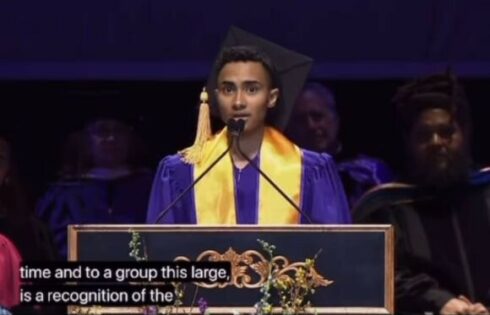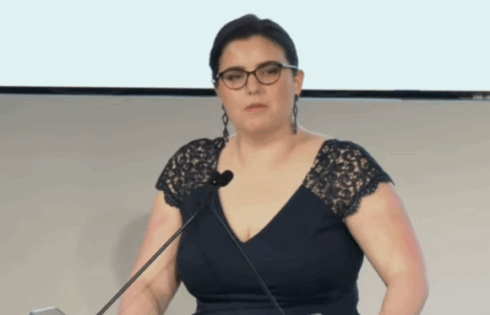Multicultural scholar Derald Wing Sue, PhD, received a warm welcome at a packed conference room in Evanston’s Garden Hilton Hotel this Thursday morning.
The Columbia psychology professor was invited to hold three 2-hour conferences for Northwestern University that day, two of which were workshops mostly with faculty and staff. The topic? Microaggressions.
According to Sue and other academics, microaggressions are “unintentional expressions of bias,” which target all marginalized groups in society.
Sue, who is Asian-American, described a typical microaggression: being told he spoke “excellent English” by a taxi driver, even though he was born in Portland, OR. That microaggression delivered a “metacommunication,” which Sue said was “you are an alien inside your own country.”
These microaggressions may seem isolated and harmless, but Sue stated that “study after study” shows that they are cumulative and “sap the spiritual and psychic energies of people of color.” In addition, says Sue, they are the reason behind large societal disparities in education, health, employment, and other fields.
But the real problem with microaggressions is their invisibility: they cannot be perceived by those in power.
“[If you talk to] CEOs they all say that they worked and sacrificed hard, and I never deny that: indeed they worked hard,” said Sue. “But what is invisible, is that there are women and people of color who worked equally hard, if not harder, but don’t make it to the batter’s box.”
“As a white man from a privileged economic class, you’ve benefited from white privilege, economic privilege, and male privilege. That was all given to you by this society.”
Sue mentioned Mitt Romney and Paul Ryan as the “epitome” of this “Myth of Meritocracy.” This particular “myth” is itself a type of microaggression: a “microinvalidation,” as it denies people of color’s “experiential reality” by implying that race plays only a minor role in life success.
But Sue stayed mostly bipartisan in his lecture, mentioning earlier on that Joe Biden’s remarks in 2007 that Obama was the “first mainstream African-American” who was “bright and clean” as an example of a typical microaggression.
In Sue’s second workshop that day, titled “Difficult Dialogues in Higher Education,” he described his vision of how universities should deal with dialogues on race.
Northwestern has had a troubled history with that last year, with several racial incidents sparking a movement for greater emphasis on diversity at the school.
According to Sue, a major aspect of what hampers honest discussions about race on campus is an inability faculty have to recognize their own biases, and a fear of appearing racist.
Clarifying that “white people aren’t the enemy- white supremacy is,” Sue explained that “it is impossible for any of us in the US not to have inherited racial, sexual, and gender biases.”
Thus what is even more worrying for many, Sue stated, is not just a fear of being perceived as racist.
“It is fear of realizing that you are racist, that you are sexist, that you are heterosexist.”
“We don’t want to see the ugliness of racism,” said Sue.
Sue then spoke of how dealing with heated conversations must be dealt with by faculty: intervening in the process rather than the content, refocusing the dialogue to feelings, and understanding differences in the “communication styles” of different races.
Lesley-Ann Brown, Northwestern’s newly-appointed Director of Campus Inclusion and Community, thought Sue’s microaggression theory could help improve the racial climate at Northwestern.
“I think for students that experience [microaggressions], it will give them a language to understand what’s going on,” she said. “It gives us a valuable framework to start having conversations around this topic.”
Sue’s third conference on Thursday was a repeat of his theories on microaggressions, except this time addressed to a crowd of about 50 Northwestern students.
He emphasized again that microaggressions are “far from benign slights, and do considerable harm to people of color, to women, and to LGBT individuals,” while relating stories of his own experiences with various microaggressions, such as being repeatedly asked where he was born and being told to sit in the back of a small plane to balance the load.
Though Sue was thoroughly applauded by students, not everyone was pleased with his lecture.
A student rose up during the question-and-answer session, accusing Sue of bias himself, and stating that his entire speech was a “microaggression against white people.”
Sue reacted by quoting Spike Lee’s saying that only white people can be racist.
“Asian-Americans [for example] can discriminate and can oppress on an individual level, but on a systemic level, African-Americans, Asian-Americans, do not have the power to oppress in the way that a white person might do because they have the very institutions that support it,” said Sue.
Other students were more positive about Sue’s lecture.
“I can personally relate to a lot of the things Sue was saying about microaggressions against Asian-Americans,” said Christine Noh, a sophomore journalism student. “Yet I was never one to take offense to it- but I see it in a different light now.”
Fix contributor Charles Rollet is a student at Northwestern University.
(Image by Kijkwijzer / Wikimedia Commons)
Click here to Like The College Fix on Facebook.





Please join the conversation about our stories on Facebook, Twitter, Instagram, Reddit, MeWe, Rumble, Gab, Minds and Gettr.